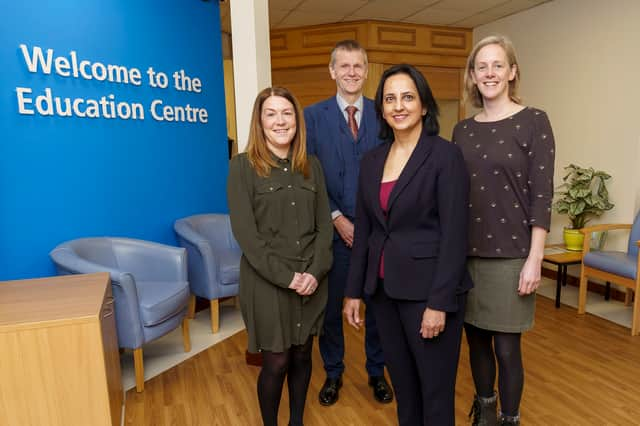Sunderland University's 'game-changing' £2million medical research boost
and live on Freeview channel 276
Sunderland University has been handed a £2million-plus boost to improve health and wellbeing.
Geriatrics specialist Dr Ellen Tullo, supported by the head of the university's School of Medicine Professor Scott Wilkes, secured funding from the National Institute for Health Research (NIHR) to establish a Clinical Academic Training Office (CATO) and Academic Clinical Fellowship (ACF) programme.
Advertisement
Hide AdAdvertisement
Hide AdTogether, they will deliver eight Academic Clinical Fellowships, 30 medical student internships and 30 funded intercalated degrees – courses with an extra year of study, usually at Master’s level, to improve students' academic skills.


The long-term goal is improved quality of care for patients and potential advances in medical training.
The research will also support work already taking place at the university in areas such as public health.
Professor Wilkes said the investment was 'game changing for the School of Medicine and the University'.
Advertisement
Hide AdAdvertisement
Hide Ad"Having traction with such bids is excellent news and creates a research environment which will support the research excellence of our academics," he said.
"I’m truly excited to see this acorn grow into an oak tree."
Dr Tullo is a specialty doctor in geriatrics at Northumbria Healthcare NHS Foundation Trust and Clinical Academic and Intercalated Degrees Lead for the School of Medicine: “Many NHS doctors are involved in research, but only a small minority will gain a PhD, and become formal clinical academics," she said.
“Our programme is about getting those essential research skills early in a medical undergraduate's career to build up their academic portfolio.
Advertisement
Hide AdAdvertisement
Hide Ad“For those students who embark on research projects and intercalation, even if they don't become a professor or complete a PhD, they are still in a better position to carry out research within the NHS. The programme is about upskilling the workforce for the benefit of patients.”
She added: “Ultimately, this funding is recognition of academic potential and a way for us to make our medical healthcare research even better, more impactful, and to develop research collaborations. In years to come we will have research intensive laboratories and teams, putting out excellent work that has wide ranging benefits for patients.”
South Tyneside and Sunderland NHS Foundation Trust (STSFT) will be supporting and supervising students and clinical fellows during the course of their projects
Trust Director of Research & Consultant Ophthalmologist Deepali Varma said: “Research is vital to improve health and our Trust is passionate about it.
Advertisement
Hide AdAdvertisement
Hide Ad"We have a vast portfolio of multi-specialty clinical research, conducting over 250 new trials in the last five years. Several of these have offered ground-breaking treatments and cutting-edge technology.
"We have not only improved the health outcomes and experience for our patients but also made a global impact."
Comment Guidelines
National World encourages reader discussion on our stories. User feedback, insights and back-and-forth exchanges add a rich layer of context to reporting. Please review our Community Guidelines before commenting.